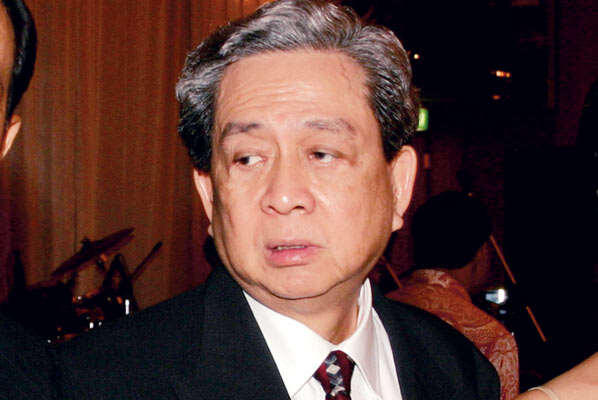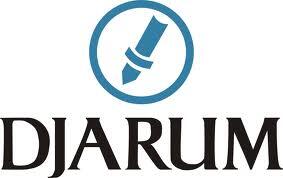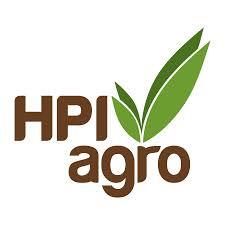https://www.kaskus.co.id/thread/51eaba118027cf6368000001/profil-orang-terkaya-no-1-di-indonesia/
Robert Budi Hartono
atau sering disingkat R. Budi Hartono sebenarnya memiliki nama asli Oei
Hwie Tjhong. Robert adalah seorang alumni Universitas Diponegoro
Semarang, keturunan Tionghoa yang lahir di Kudus, Jawa Tengah pada tahun
1941 sebagai anak kedua dari Pendiri Djarum, Oei Wie Gwan. Michael
Bambang Hartono adalah kakaknya yang memiliki nama asli Oei Hwie Siang.
Spoiler for 10 orang terkaya 2013:

R. Budi Hartono menikahi seorang wanita bernama Widowati Hartono atau lebih akrab dengan nama Giok Hartono. Bersamanya, Pemilik PT Djarum ini memiliki tiga orang putra yang kesemuanya telah menyelesaikan pendidikan. Mereka adalah Victor Hartono, Martin Hartono, dan Armand Hartono.
Sebagai salah satu orang terkaya Indonesia, tentunya Anda bertanya-tanya darimana kekayaan yang dimiliki Robert Budi Hartono. Mari kita mulai dari titik awal Bos Djarum ini merintis karir.

Djarum Awal dari Semuanya
Bersama kakaknya Michael Hartono, Robert di usianya yang ke 22 tahun menerima warisan salah satu perusahaan rokok ternama saat ini, Djarum. Perusahaan Djarum sebelumnya merupakan usaha kecil yang bernama Djarum Gramophon yang kemudian dibeli oleh ayah Robert pada tahun 1951 dan mengubah namanya menjadi Djarum. Robert dan kakaknya menerima warisan ini setelah ayahnya meninggal. Pada saat itu pabrik perusahaan Djarum baru saja terbakar dan mengalami kondisi yang tidak stabil. Namun kemudian di tangan dua bersaudara Hartono bisa bertumbuh menjadi perusahaan raksasa.
Saat ini, Di Amerika Serikat pun perusahaan rokok ini memilki pangsa pasar yang besar. Dan di negeri asalnya sendiri, Indonesia, produksi Djarum mencapai 48 milyar batang pertahun atau 20% dari total produksi nasional. Seiring dengan pertumbuhannya, perusahaan rokok ini menjelma dari perusahaan rokok menjadi Group Bisnis yang berinvestasi di berbagai sektor.
R. Budi Hartono dengan Group Djarum yang dipimpinnya pun melebarkan sayap ke banyak sektor antara lain perbankan, properti, agrobisnis, elektronik dan multimedia. Diversifikasi bisnis dan investasi yang dilakukan Group Djarum ini memperkokoh Imperium Bisnisnya yang berawal di tahun 1951.
Sektor Perbankan

Pada tahun 2007, R. Budi Hartono bersama kakaknya, Michael Hartono di bawah bendera Group Djarum melebarkan investasi ke bidang perbankan. Dan menjadi pemegang saham utama, mengendalikan 51% saham, PT Bank Central Asia Tbk (BCA) yang merupakan salah satu bank terbesar di Indonesia saat ini. Berdasarkan data Bank Indonesia pada Desember 2011 nilai aset BCA sebesar Rp 380,927 Triliun (tiga ratus delapan puluh koma sembilan ratus dua puluh tujuh rupiah).
Sektor Properti

Di sektor ini, banyak proyek yang dijalankan di bawah kendali CEO Djarum ini, R. Budi Hartono, dan yang paling besar adalah mega proyek Grand Indonesia yang ditantangani pada tahun 2004 dan selesai pada tahun 2008. Proyek ini mencakup hotel (renovasi dari Hotel Indonesia), pusat belanja, gedung perkantoran 57 lantai dan apartemen. Total nilai investasinya 1,3 Triliun rupiah.
Sektor Agribisnis

Di sektor Agribisnis, Robert bersama Michael memiliki perkebunan sawit seluas 65.000 hektar yang terletak di provinsi Kalimantan Barat dari tahun 2008. Mereka bergerak di bawah payung Hartono Plantations Indonesia, salah satu bagian dari Group Djarum.
Sektor Elektronik dan Multimedia

Salah satu bisnis Group Djarum di sektor ini bergerak di bawah bendera Polytron yang telah beroperasi lebih dari 30 tahun. Perusahaan Polytron ini kini juga memproduksi ponsel yang sebelumnya hanya meproduksi AC, kulkas, produk video dan audio, dan dispenser.
Sektor Lainnya

Salah satu sektor bisnis yang baru mulai berkembang di Indonesia adalah bisnis online. Group Djarum pun tertarik untuk “menikmatinya” lewat perusahaannya Global Digital Prima Venture.
Bukti Eksistensi Group Djarum
Gedung pencakar langit di kompleks mega proyek Grand Indonesia diberi nama Menara BCA. Karena bank BCA menjadi penyewa utamanya dari tahun 2007 hingga 2035. Dengan demikian tergabunglah lingkungan operasional dua raksasa bisnis Indonesia di tengah-tengah pusat ibukota yang menjadi bukti keberkuasaan Djarum di kancah bisnis Indonesia.
SEMOGA BERMANFAAT DAN BISA MENJADI MOTIVASI BAGI AGAN2 SEMUA UNTUK TERUS MAJUUUUU !

 Source:
Source: 